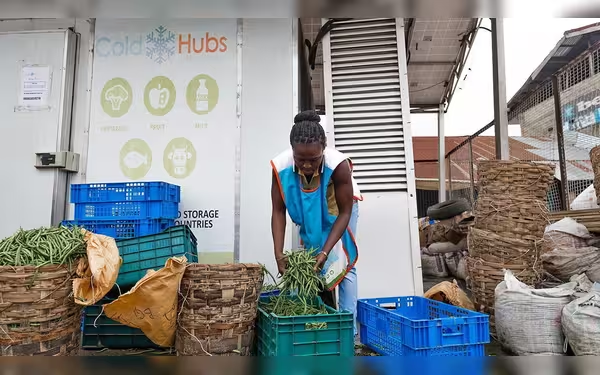Saturday, November 16, 2024 05:31 PM
Cooling Strategies for Africa Amid Climate Change
- Extreme heat threatens daily life in Africa.
- Access to cooling technologies is essential.
- Communities must adapt agricultural practices.
 Image Credits: economist
Image Credits: economistExplore how Africans can combat extreme heat through technology, agriculture, and community support in a warming climate.
As the world grapples with the pressing issue of climate change, few regions are feeling the heat more acutely than Africa. The continent, known for its diverse landscapes and rich cultures, is also home to some of the most extreme weather conditions. With rising global temperatures, Africans are facing a daunting challenge: how to stay cool in a warming climate.
Extreme heat poses a significant threat to daily life in many African countries. It can lead to crop failures, spoilage of food and medicines, and can even hinder basic activities such as working, studying, or sleeping. As temperatures continue to rise, the number of days with dangerously high heat levels is expected to increase, making it essential for communities to find effective ways to cope.
One of the most immediate solutions is to improve access to cooling technologies. This includes solar-powered fans and refrigerators, which can help keep food and medicines at safe temperatures. In rural areas, where electricity may be scarce, simple solutions like using clay pots to store water can provide a natural cooling effect. These traditional methods, combined with modern technology, can make a significant difference.
Moreover, communities can adapt their agricultural practices to withstand the heat. This might involve planting heat-resistant crops or adjusting planting schedules to avoid the hottest months. Education plays a crucial role here; farmers need to be informed about the best practices to ensure their crops can survive in changing conditions.
Urban areas also face unique challenges. Cities can become heat islands, where temperatures are significantly higher than in surrounding rural areas due to concrete and asphalt absorbing heat. To combat this, cities can plant more trees and create green spaces, which not only provide shade but also help cool the air. Additionally, reflective building materials can be used to reduce heat absorption.
On a personal level, individuals can take simple steps to stay cool. Staying hydrated, wearing light clothing, and avoiding outdoor activities during peak heat hours can help mitigate the effects of extreme temperatures. Communities can also come together to support each other, sharing resources and knowledge on how to cope with the heat.
As Africa faces the reality of a warming climate, it is crucial for individuals, communities, and governments to work together to find solutions. By embracing both traditional practices and modern technology, Africans can develop effective strategies to stay cool and protect their livelihoods. The fight against extreme heat is not just about survival; it is about ensuring a sustainable future for generations to come.













